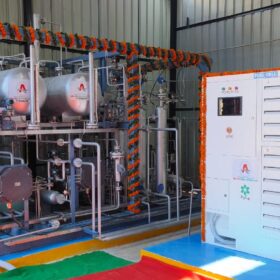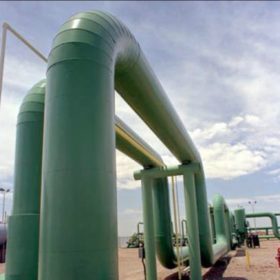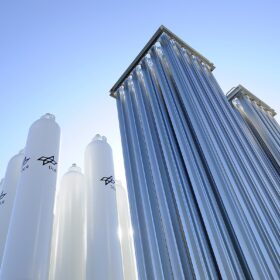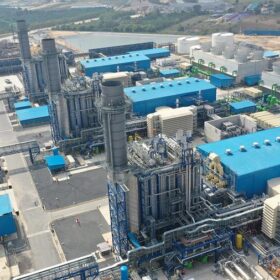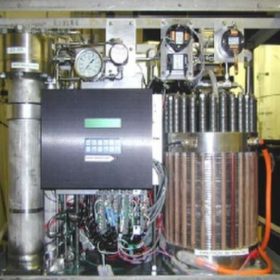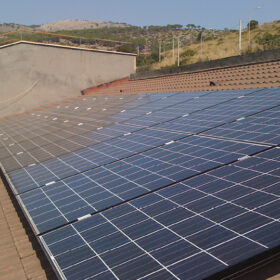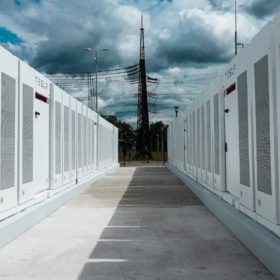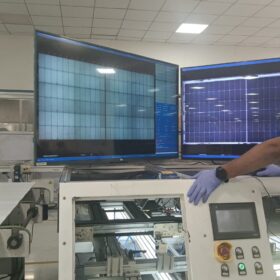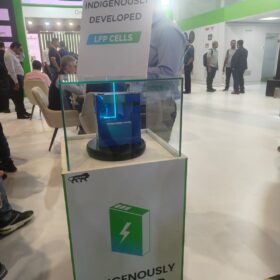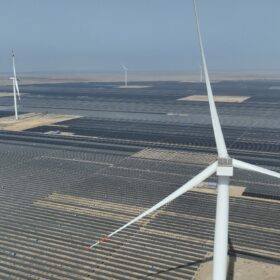The Hydrogen Stream: Shell awards 10 MW SOEC module contract to Ceres
Ceres Power Holdings has secured a contract to design a 10 MW pressurised solid oxide electrolyser (SOEC) module for use in large-scale industrial applications such as synthetic fuels, ammonia and green steel.
The Hydrogen Stream: Airox Nigen commissions indigenously built electrolyzer, fuel cell for SJVN’s multi-purpose green hydrogen project
Airox Nigen Equipments has commissioned its indigenously built alkaline electrolyzer and fuel cell for SJVN’s multi-purpose green hydrogen pilot project in Jhakri, Himachal Pradesh.
The Hydrogen Stream: GAIL opens 10 MW green hydrogen plant
GAIL (India) Ltd, India’s largest natural gas company, has set up a green hydrogen plant that can produce 4.3 tonnes of hydrogen per day through 10 MW PEM (proton exchange membrane) electrolyzer units.
Policy uncertainty creates ‘gap’ between hydrogen aims and reality, says BNEF
BloombergNEF (BNEF) says in a new study of 1,600 planned hydrogen projects that governments will miss their 2030 hydrogen targets. Analyst Adithya Bhashyam tells pv magazine that most of the announced projects to the end of this decade lack the key conditions for success.
The Hydrogen Stream: Hygenco, Mitsubishi partner to deliver green hydrogen-fired GTCC power plants
Hygenco Green Energies has signed a memorandum of understanding (MoU) with Mitsubishi Heavy Industries and Mitsubishi Power to deliver green hydrogen-/ammonia-fired gas turbine combined cycle (GTCC) power plants.
The Hydrogen Stream: India extends bidding for second round of electrolyzer incentives
Manufacturers now have until May 31 to submit bids for setting up electrolyzer manufacturing capacities in India under the second round of the government’s Strategic Interventions for Green Hydrogen Transition (SIGHT) program.
The Hydrogen Stream: Larsen & Toubro to commission electrolyzer factory this fiscal
Larsen & Toubro’s electrolyzer factory in Hazira, Gujarat, will produce electrolyzers in sizes up to 4 MW.
The Hydrogen Stream: Asahi India Glass signs 20-year green hydrogen off-take agreement with INOX Air Products
INOX Air Products will build and operate a green hydrogen plant with a capacity of 190 tonnes per annum (TPA). The plant will supply 95 TPA of green hydrogen to Asahi India’s float glass manufacturing facility in Rajasthan in the first phase.
Italy bans large-scale solar from agricultural land
The Italian government has issued a new decree to completely ban solar from agricultural land. The new provisions will not apply to projects currently undergoing the approval process.
Italy’s EU-made PV incentives raise specter of Chinese opposition
A World Trade Organization (WTO) official and several Italian lawyers recently spoke with pv magazine Italy about the timing of a potential Chinese legal challenge against Italy’s new solar measures, which exclusively provide incentives for high-performance PV modules produced in the European Union.

